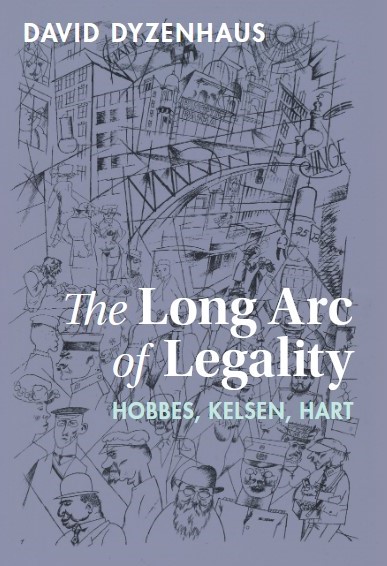To Oppose
Go outside, gather and protest: you can just do that. You don’t need permission, not from the authorities nor from anyone else, you don’t have to justify yourself and give reasons and be right about them. You oppose, and you are allowed to express your opposition, collectively and for all to see, hear and feel. Freedom of assembly is a fundamental political right in the most literal sense, just like freedom of expression, of which it is the collective expression. Collective opposition. As a citizen, you have to be allowed to it. As a matter of constitutional law.
Being allowed to oppose, it seems, is something that these days mainly COVID deniers and anti-vaxxers insist on: oppose vaccination, masks, distance requirements and generally everything the security state has tried to minimize the danger of infection in the last two years with. However, unvaccinated, unmasked, undistanced collective protest is in turn linked to risks of infection which may justify the regulation or even prohibition of that very collective protest in concrete individual cases and in a proportionate way. As a state, you have to be allowed to it. As a matter of administrative law.
In order to administer, however, the state must first see. It must adapt what it meets to its own preconditions of perception and cast it into compact forms that it can subsume under its abstract legal concepts and to which it can address its Verwaltungsakte (administrative acts). It needs someone who assembles the assembly, who plans and directs and registers it, to whom it can address its regulations and whom it can hold liable if they are not observed. And if there is no such person, if all you have are seemingly uncoordinated, leader-less “Spaziergänger” (promenaders) cavorting about the city and protesting here and there and everywhere, individually or in small liquid groups, who scream that they are only walking their dog every time you want to impose an administrative act on them – then the state feels blind and starts panicking and throwing boulders about like Polyphemus, the cyclops from the Odyssey.
++++++++++Advertisement++++++++

Wissenschaftlicher Mitarbeiter (m/w/d)
An der Juristenfakultät, Professur für Öffentliches Recht, insbesondere Europarecht, Völkerrecht, Migrationsrecht und Rechtsvergleichung (Prof. Dr. Mattias Wendel) ist ab dem 1. März 2022 die Stelle eines Wissenschaftlichen Mitarbeiters (m/w/d) in 50% Teilzeit (TV-L E 13) befristet auf 2 Jahre zu besetzen. Es wird Gelegenheit zur Promotion gegeben.
Bewerbungsschluss ist der 31.01.2022. Mehr Informationen gibt es hier.
+++++++++++++++++++++++++++
In recent weeks, more and more cities and counties have started throwing boulders in the form of so-called Allgemeinverfügungen (general orders) in order to finally get these damned invisible “Spaziergänger” demonstrations administrated. These general orders, unlike abstract laws, regulate a concrete situation, but, unlike normal administrative acts, are not addressed to a specific person, but to a somehow defined general public. The most recent example of this is Dresden: on Saturday, 22 January, in the entire city area of the Saxon state capital, “any assembly not duly (…) notified in writing and confirmed by the authorities”, which “have as its subject or refer to the collective protest against measures to contain the COVID pandemic (hygiene measures, vaccinations, etc.)” is prohibited, Spaziergang or not, including “any other thematically comparable, non-registered and non-officially confirmed substitute assembly”. In short: what is prohibited is defined by what is being opposed. It is no longer this or that concrete expression of opposition in this or that place by this or that person that is considered dangerous and thus prohibited, but opposition itself.
With all due respect, you can’t do that.
I understand how frustrating it must be for the authorities to be constantly trolled in this way by these alleged “promenaders” and the right-wing extremists mixed in with them. But administrative difficulties of this kind are no justification to throw boulders around and risk hitting the constitution with them.
The state is prohibited from banning a specific and concrete opinion as such. This is why it may regulate expressions of opinion, but only within the framework of “general laws” (Article 5(2) of the Basic Law) as opposed to specific laws that focus on specific points of view. This is not a matter of proportionality, but a “specific and strict prohibition of discrimination“. No matter what kind of danger it is facing and what it does to avert it, the state must always ensure that the space for political controversy does not close and that people can argue about its measures, also and especially the measures with which it seeks to avert the danger. It owes this not only to the COVID protesters. It owes this to me as their political opponent, who is by and large very much in favour of vaccination, masks and distance requirements, which however wouldn’t matter any more if the state had already made this decision for me in the first place. In doing so, it would degrade me to an unfree subject doing as I’m told instead of what I think is right. And in this way it would inch closer to becoming the very authoritarian bogeyman which the COVID protesters, to stay motivated, keep telling themselves horror stories of.
And this, if you allow, I would most resolutely oppose.
The week on Verfassungsblog
Even if the desire for a miracle cure that puts an end to the pandemic is great: Mandatory vaccination is constitutionally permissible only within narrow limits, writes UTE SACKSOFSKY, subjecting the German government’s mandatory vaccination plans to a proportionality test.
In the USA, the Supreme Court has suspended compulsory vaccination for employees of large companies, but not for employees in hospitals – even though the legal situation in both cases clearly allowed for protection against health hazards. DAVID DRIESEN sees this as an extremely grim omen for the Supreme Court’s future jurisprudence and its understanding of its own role vis-à-vis administrative decisions. RONI MANN looks at the current debate on reforming the Court by changing its composition and restoring its ideological balance, and identifies three different understandings of law and democracy.
++++++++++Advertisement++++++++

Stellenausschreibungen
Am Lehrstuhl für Deutsches und ausländisches Öffentliches Recht, Europa- und Völkerrecht an der Albert-Ludwigs-Universität Freiburg sind eine PostDoc-Stelle (TV-L 13, 100 %) sowie drei Stellen als wiss. Mitarbeiter*in (TV-L 13, 50 % bzw. 25 %) zu besetzen. Bevorzugt berücksichtigt werden Bewerbungen mit europa- und/oder völkerrechtlichem Schwerpunkt. Exzellente Englischkenntnisse, Leidenschaft für die Wissenschaft, Teamfähigkeit und Einsatzbereitschaft sind unabdingbar.
Rückfragen an starski@mpil.de.
+++++++++++++++++++++++++++
In Italy, as in Germany, there will soon be an election of the head of state. As CARLO FUSARO reports, the office of president is constitutionally very similar in both countries. But in political reality, there is much more at stake in Italy.
In Serbia, there was a constitutional referendum last Sunday to improve the independence of the judiciary and the organisation of the judicial system – making EU accession more likely and welcomed by the EU Commission and the Venice Commission. TEODORA MILJOJKOVIC explains why the Europe-oriented part of the political spectrum in Serbia is anything but happy about this referendum nevertheless.
Speaking of Serbia, tennis star Novak Djokovic, unvaccinated, has had his visa cancelled by Australia, which has caused a lot of commotion worldwide, but has also thrown a spotlight on the reality of Australia’s immigration regime. MARIA O’SULLIVAN has hopes that the case will provide some impetus for reforming the most controversial aspects of Australian law.
Speaking of immigration, ANNA LÜBBE examines the EU Commission’s plans to amend the Schengen Borders Code and legalise pushbacks to some extent – a breach of fundamental principles of international migration law.
This week, the ECJ issued an important ruling on the issue of deprivation of citizenship: In Austria, one can become stateless if one applies for Austrian citizenship as an EU citizen, therefore gives up one’s original citizenship and then Austria withdraws its promise of naturalisation because of mere traffic violations. This, according to the ECJ, is disproportionate. DIMITRY KOCHENOV and DAVID DE GROOT acknowledge this as progress, but nevertheless denounce the ECJ for sticking to the idea that the loss of EU citizenship can be justified by proportionality at all.
In France, Emmanuel Macron’s proposal to increase university tuition fees has met with much criticism, including constitutional. But French case law is not very clear on this point, reports NATHAN DE ARRIBA-SELLIER.
++++++++++Advertisement++++++++

David Dyzenhaus – The Long Arc of Legality
The Long Arc of Legality breaks the current deadlock in philosophy of law between legal positivism and natural law by showing that any understanding of law as a matter of authority must account for the interaction of enacted law with fundamental principles of legality. This interaction conditions law’s content so that officials have the moral resources to answer the legal subject’s question, ‘But, how can that be law for me?’ David Dyzenhaus brings Thomas Hobbes and Hans Kelsen into a dialogue with H. L. A. Hart.
For more information click here.
+++++++++++++++++++++++++++
Meanwhile, the world waits in trepidation to see if Russian President Putin will actually invade Ukraine, but hesitates to supply Ukraine weapons to defend itself with. Germany in particular likes to pretend that it is following the principle of not supplying weapons to crisis areas, but in practice it has long since become entangled in the most terrible contradictions of values. For ISABELLE LEY, the question therefore arises as to why and with what objective Germany exports arms at all.
One partner in the German government coalition, the Greens, was caught up in an unpleasant affair this week: After the party leaders helped themselves to approved a COVID bonus, the Berlin public prosecutor’s office is now investigating on initial suspicion of breach of trust (§ 266 StGB). Tabloid media speak of a “political bomb”, while MICHAEL KUBICIEL doubts that it will have much explosive power in terms of criminal law.
So much for this week. All the best to you, please don’t forget to support us on Steady, stay safe and see you next week,
Max Steinbeis




Of course, only anti-vaxxers and COVID deniers were insisting on the right to protest during the pandemic. No BLM protests in US. No overthrown monuments in the UK. No pro-abortion and anti-government protests in Poland (all of them of course distanced and masked when destroying property). No Amnesty International petitions that it is a basic right of a human being to protest (pertaining to Greece, Australia, Poland and so on). The liberal commentariat cannot even hide its biases and prejudices. The author seems almost disgusted when talking about “unvaccinated, unmasked, undistanced collective protest”. He does not like “COVID deniers and anti-vaxxers”, so why would they have a right to protest?
The editor did not even mention that the protests are not only about vaccination itself, but also time-limited vaccine passes and other surveillance methods, which are a controversial tool. No mentioning of the basic fact that there is an internationally recognized right to ‘free and informed consent’, which gives the so-called anti-vaxxers a powerful constitutional and bioethical argument, which we cannot simply dismiss as a conspiracy. Even among the German Ethics Council there are scholars voting against mandatory vaccination (well, they have already thrown one out of the Bavarian Council, when he was against lockdowns).
No, according to the editor, the security state has to do anything to slow down infection rates. The author is even wrong on this issue. Look at some pre-pandemic planning, see what happens with Omicron when governments are lifting most restrictions.
Dude, did you even read the article?